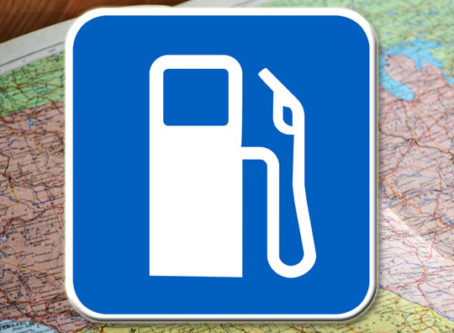Nearly half of all states now tab alternative-fuel vehicles for more revenue
As states remain waiting on the federal government to reach a transportation funding deal, elected officials at statehouses across the country continue to come up with their own solutions to help boost transportation funding. Among the trending options at statehouses in recent years is tapping alternative-fuel vehicles for additional revenue.
In an effort to encourage people to pursue more fuel-efficient options many states now offer financial incentives for hybrid and electric vehicle owners. According to the National Conference of State Legislatures, only about 1% of all light-duty car sales across the nation are for electric vehicles.
However, as popularity for such vehicles is anticipated to grow, more and more state officials are concerned about the lost transportation revenue that results from fuel-efficient vehicles.
The NCSL reports that 24 states now impose additional fees for the registration and licensing of certain affected vehicles. Fees soon will range from $50 annually to $250 annually.
Below are some notable steps recently taken at statehouses to raise more revenue from alternative-fuel vehicles.
Alabama
New annual flat-rate registration fees on electric vehicles are on the books in Alabama.
Included in a new law to raise the state’s fuel tax rate by 10 cents is an annual tax on electric vehicles of $200. Additionally, HB2 will collect an annual tax of $100 on plug-in hybrid vehicles.
The first $150 collected from electric vehicles and the first $75 from hybrids will be divvied up between the state, counties and cities. The state would receive two-thirds of the revenue, with counties getting one-quarter, and cities claiming the rest.
The remaining revenue will be used to build charging stations across the state.
Arkansas
A new law in Arkansas will raise road revenue via a new wholesale fuel tax, increased license fees on hybrid and electric vehicles, and through other state revenue.
Previously SB336, the new law is estimated to raise nearly $100 million annually for the state Department of Transportation. Increasing registration fees for hybrid and electric vehicles will raise $1.9 million.
Illinois
A similar deal reached in Illinois to raise fuel taxes and vehicle fees includes a component to raise additional revenue from electric vehicle owners.
The state already collects a $35 registration fee over two years on electric vehicles.
Starting next year, SB1939 raises the fee to about $250 annually.
North Dakota
One new North Dakota law boosts transportation funding via electric and hybrid vehicles. Additional revenue will be used to help cover costs for road upkeep and construction.
Effective Aug. 1, SB2061 calls for the collection of a $120 annual “road use fee” on electric vehicles. “Plug-in” hybrids will see a $50 yearly fee. Owners of electric motorcycles will pay a $20 annual fee.
Revenue estimated in excess of $200,000 annually will be used for state and local roads, and transit.
Ohio
As part of the state’s two-year transportation budget, Ohio owners of electric and plug-in hybrid vehicles now are paying more to register their vehicles.
Since July 1, owners of electric vehicles must pay a $200 yearly fee. A $100 fee will be collected on plug-in hybrid vehicle owners.
Wyoming
Gov. Mark Gordon acted earlier this year signing into law a bill to collect more revenue from alternative-fuel vehicles.
State law requires plug-in electric cars to have a decal costing $50 each year.
HB166 increases the annual fee for plug-in electric vehicles to $200.
Active legislation
Action is ongoing at the Pennsylvania statehouse. One House bill is intended to “ensure all vehicles pay for the roads they use.”
Rep. Mike Carroll, D-Luzerne, says the current setup in the Keystone State allows owners of plug-in electric vehicles to avoid filing monthly statements to the state and remitting the alternative fuel tax on how much electricity their vehicle uses.
“Although plug-in electric vehicles cause the same wear and tear on our roads as gas powered vehicles, they contribute substantially less in fuel taxes toward our transportation infrastructure due to Pennsylvania’s confusing and difficult to administer alternative fuel tax on electricity,” Carroll said in a memo to House lawmakers.
His bill, HB1392, would replace the current system with an annual electric vehicle fee.
Electric vehicle owners would pay $150 each year and commercial electric vehicle owners would pay $250.
The House Transportation Committee voted to advance the bill for further consideration in the chamber. If approved there, it would move to the Senate.









